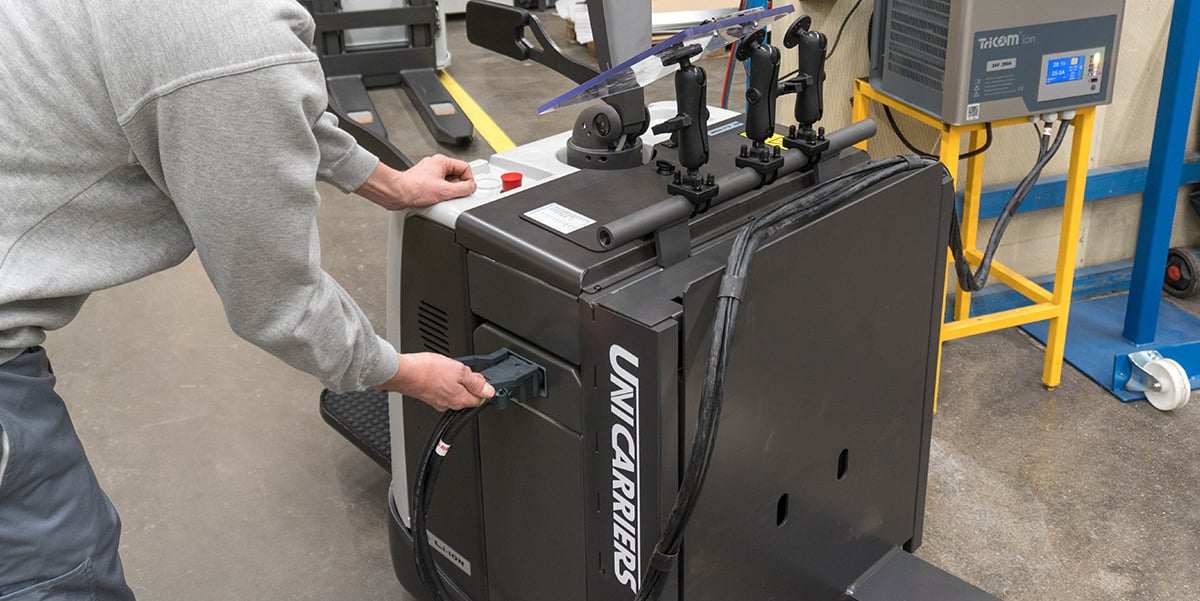
The traditional lead-acid forklift battery is a tried-and-tested technology that is still being improved, and it's still the most common source of power for electric forklifts. However, there's still not a solution for the regular maintenance these batteries require to keep working at their best.
For one, lead-acid batteries need to be topped up with water regularly. When this type of battery is charged, the fluid inside it dissociates into oxygen and hydrogen gas, which results in the fluid level dropping. If it drops enough, the lead plates are exposed to air, and begin to oxidise. This can cause permanent battery damage, and it's one of the main reasons that batteries become defective early.This means it's vital to remember to top up the batteries with water as the fluid level drops. Some battery suppliers offer low-maintenance batteries which don't need to be topped up as often, or batteries with alarms that alert you when it's time for filling. However, these still require staff to take the time to fill the battery, which can be disruptive to the rest of the operation.
As well as water filling, lead-acid batteries can develop problems with sulphation. As the battery discharges, sulphur crystals form inside it. If the battery is left on a low charge for a long period, this sulphur can deposit on the battery plates, forming large crystals. Special charge cycles can be applied to the battery to dissolve these crystals, a process which takes time. If the problem is not caught early, however, the damage can become permanent, rendering a battery useless in the worst cases.
On top of all this, the outside of the battery requires regular cleaning, to prevent the dirt and corrosive substances that builds up from regular operation and chemical reactions during charging and discharge.
So, how can you save all of the work, time and money that goes into this constant maintenance? It's certainly not an option that can work for every operation where forklifts are used, but for many businesses, lithium-ion forklift batteries are a good solution. Amongst other benefits, Li-ION batteries are practically maintenance-free — due to their design, they don't suffer from the kind of corrosion and sulphation that happens to lead-acid batteries. They'll stay in good working order for a long time, without much maintenance or cleaning from you.
This leaves you with more time, staff and budget to spend on the important things — the actual work of materials handling. If you're interested in learning more about Li-ION technology and the other benefits it could bring to your business, click the button below to get our free guide, Why choose Li-ION forklift batteries? Just fill out the short form on the next page and it's yours.







































Comment